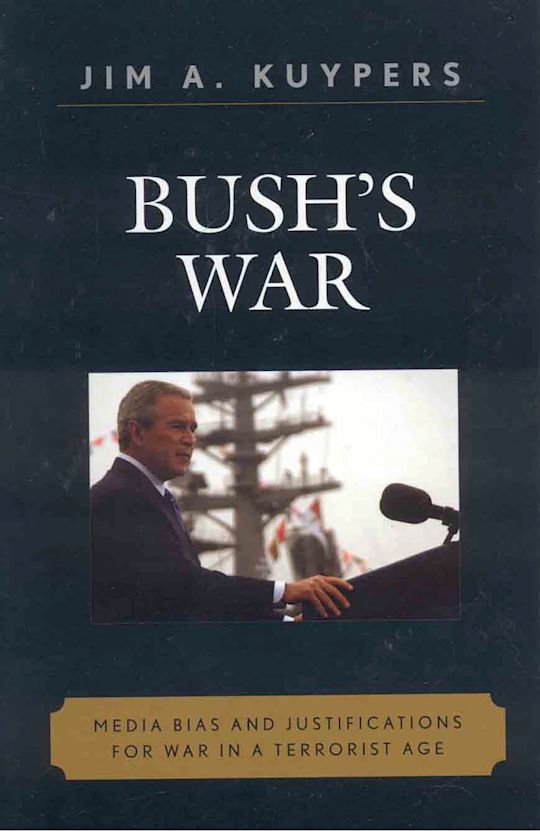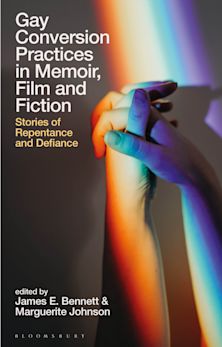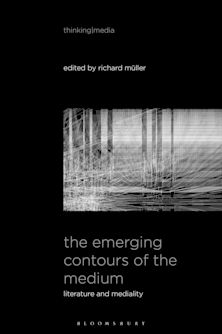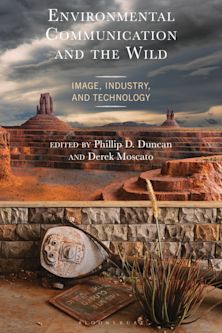- Home
- ACADEMIC
- Film & Media
- Film and Media Studies - Other
- Bush's War
You must sign in to add this item to your wishlist. Please sign in or create an account
Description
Immediately after the attacks of September 11, 2001, Americans looked to President Bush for words of leadership. In his most formal reply of the day, he said, 'Today, our fellow citizens, our way of life, our very freedom came under attack in a series of deliberate and deadly terrorist acts. The victims were in airplanes, or in their offices; secretaries, businessmen and women, military and federal workers; moms and dads, friends and neighbors. Thousands of lives were suddenly ended by evil, despicable acts of terror.' The stark tone of Bush's speech suggested the promise of more words to come from the president, and it is these words that Bush's War addresses. While many books have offered a take on the attacks of 9/11 and their impact upon American society, one area has been comparatively ignored: presidential justifications for war in the age of terrorism. Specifically, what did President Bush say to justify American military actions in the postD9/11 world? And how did the public hear what he said, especially as it was filtered through the news media? The eloquent and thoughtful Bush's War shows how public perception of what the president says is shaped by media bias. Jim A. Kuypers compares Bush's statements with press coverage, arguing that the nature of American public knowledge concerning our role in the world has been changed_not by 9/11, but by the subsequent argumentative back-and-forth between Bush and the press.
Table of Contents
Chapter 2 A New Justification for War?
Chapter 3 President Bush Speaks to the United Nations, November 2001
Chapter 4 The State of the Union, 29 January 2002
Chapter 5 Remarks by the President from the USS Abraham Lincoln, May 2003
Chapter 6 President Bush Addresses the United Nations General Assembly, September 2003
Chapter 7 President Bush Commemorates Veterans Day and Discusses War on Terror, 11 November 2005
Chapter 8 News Media Reporting of the War on Terror
Product details
| Published | 10 Oct 2006 |
|---|---|
| Format | Ebook (Epub & Mobi) |
| Edition | 1st |
| Extent | 210 |
| ISBN | 9780742572294 |
| Imprint | Rowman & Littlefield |
| Series | Communication, Media, and Politics |
| Publisher | Bloomsbury Publishing |
About the contributors
Reviews
-
This is a time of maximum danger for our country?a time of crisis. The American people historically turn to the President during these times for explanation, for comfort, and for exhortation to purpose. Yet, the President does not speak directly to the people. His speech is mediated; he speaks through the media, members of the media comment on presidential speech, and others comment on the comment. In short, the media 'frames' the presidential message, thus ensuring certain reactions to it. Jim Kuypers is the best in the business at explaining presidential crisis communication and its relationship to the media. Regardless of your partisan position on the War on Terror, Bush's War: Media Bias and Justifications for War in a Terrorist Age must be onyour reading list..
Dennis W. White, Arkansas State University; retired lieutenant colonel, U.S. Army
-
an important new book to examine how powerfully the president's fortunes depend not only on what the administration says but also what the media say the White House said.
Presidential Studies Quarterly
-
This book is a concise and informative, even pleasurable, read....Kuypers offers a well-developed argument worthy of debate.
Review of Communication
-
This is a skilled and thoughtful work of scholarship, well worth a careful reading. Kuypers's book is provocative in the best sense of the word: It can stimulate fresh thinking about presidential rhetoric and press reporting of it-which Kuypers shows can be two very different things.
Stephen D. Cooper, Marshall University; author, Watching the Watchdog: Bloggers as the Fifth Estate
-
This is a time of maximum danger for our country-a time of crisis. The American people historically turn to the President during these times for explanation, for comfort, and for exhortation to purpose. Yet, the President does not speak directly to the people. His speech is mediated; he speaks through the media, members of the media comment on presidential speech, and others comment on the comment. In short, the media 'frames' the presidential message, thus ensuring certain reactions to it. Jim Kuypers is the best in the business at explaining presidential crisis communication and its relationship to the media. Regardless of your partisan position on the War on Terror, Bush's War: Media Bias and Justifications for War in a Terrorist Age must be on your reading list.
Dennis W. White, Arkansas State University; retired lieutenant colonel, U.S. Army



































